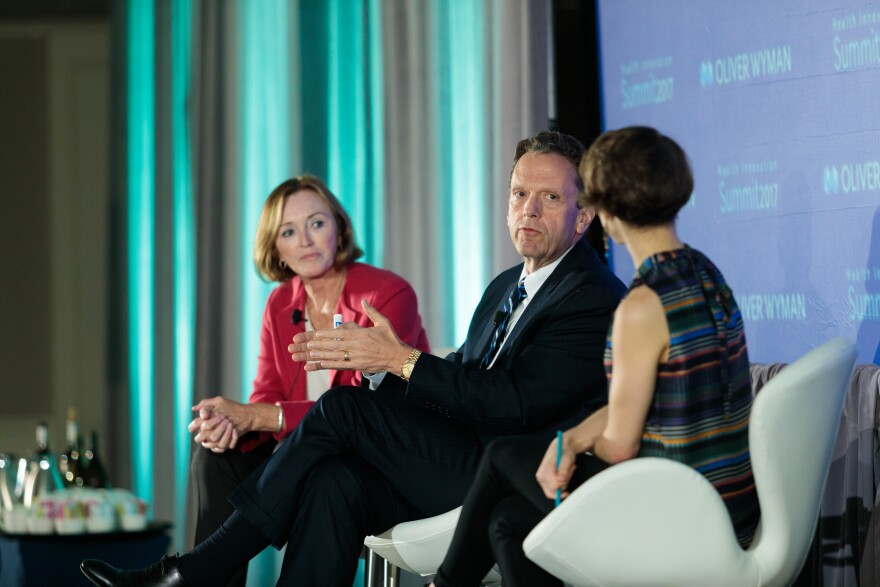It’s the second week of open enrollment for health care on the federal marketplace.
While people across North Texas are deciding which plans to sign up for, some of the people who design those very plans are meeting in Dallas. And they’re talking about what health care might look like five or 10 years from now at the Oliver Wyman Health Innovation Summit.
Health care executives from more than 30 states and six countries are at the Fairmont Hotel in Dallas this week trying to predict the future of health care. It’s appropriate that they’re gathered here, in the birthplace of employer-based health insurance.
Nearly a century ago, a Baylor University official named Justin F. Kimball thought of a way to get regular folks to start paying for health care the same way they might have paid for their Model Ts or homes — with tiny contributions each month. The cost in the late 1920s was just 50 cents a month, or $6 a year to get coverage for a variety of medical services.
'A need, not a want'
Today, more than 150 million people have health insurance through their employers. But when it comes to products Americans purchase, health insurance is one of the least popular. In the opening conversation at the Oliver Wyman Health Innovation Summit, two health care experts took on the issue of customer satisfaction.
“Health insurance is a need, not a want, and so when you have something that’s needed you’re going to have a little bit of a lower score to start with,” David Holmberg said.
Holmberg is CEO of Highmark Health, a national health and wellness enterprise based in Pittsburgh that serves an estimated 40 million people nationwide.
“We've asked the consumer to pay more, to participate more in their decisions,” Holmberg said. “And the consumer is also raising the bar, expecting more not only out of insurance companies but health care providers in general. I don’t know that the industry is moving rapidly enough.”

Cost of care
The health insurance industry is represented, in part, by Marilyn Tavenner, president of America’s Health Insurance Plans. Before taking on that role, Tavenner was administrator for the Centers for Medicare and Medicaid Services and spearheaded the rollout of the Affordable Care Act under former President Barack Obama.
She says high prices are at the core of consumer dissatisfaction.
“Until we actually deal with the underlying cost, we will never make the consumer happy,” Tavenner said.
To get at the issue of cost, Holmberg said Highmark Health, among others, is changing where health care is delivered.
“We just announced last week we’ll be building five new hospitals, four of which will be neighborhood hospitals, in combination with Emerus, which is a Texas-based company,” Holmberg said.
“There will be team-based primary care and a 24/7 emergency room. There will be a dozen hospital beds with the idea that somebody who needs an infusion -- limited amount of care but isn’t going to be in an acute setting -- we can keep them closer to home, less expensive.”
Tavenner said more health care insurers are embracing new models of care.
“I do think it’s the way of the future and I think that’s the only way we’re ever going to be able to take care of chronically ill individuals is wrap the resources around them,” Tavenner said.
"Until we actually deal with the underlying cost, we will never make the consumer happy."
Future of the ACA
The transition to preventative care was driven in part by the Affordbale Care Act, which rewards value rather than volume. And although Tavenner and Holmberg stand on opposite sides of the political spectrum, they both think the Obama-era legislation will still largely be in place in November of 2020, when the next presidential election is held.
“In the history of our country, no social program as significant as this has ever been rescinded,” Holmberg said. “To pull it and take it away at this point is really, really difficult. I think it risks death by a thousand cuts if we’re not careful, but I don’t think we’re going to like the answer when we’re done.”
The search for answers about the future of health care wraps up Wednesday afternoon in Dallas. Who knows, maybe a century after the prototype for employer-based insurance was developed here, someone at this summit will come up with another extraordinary idea.




